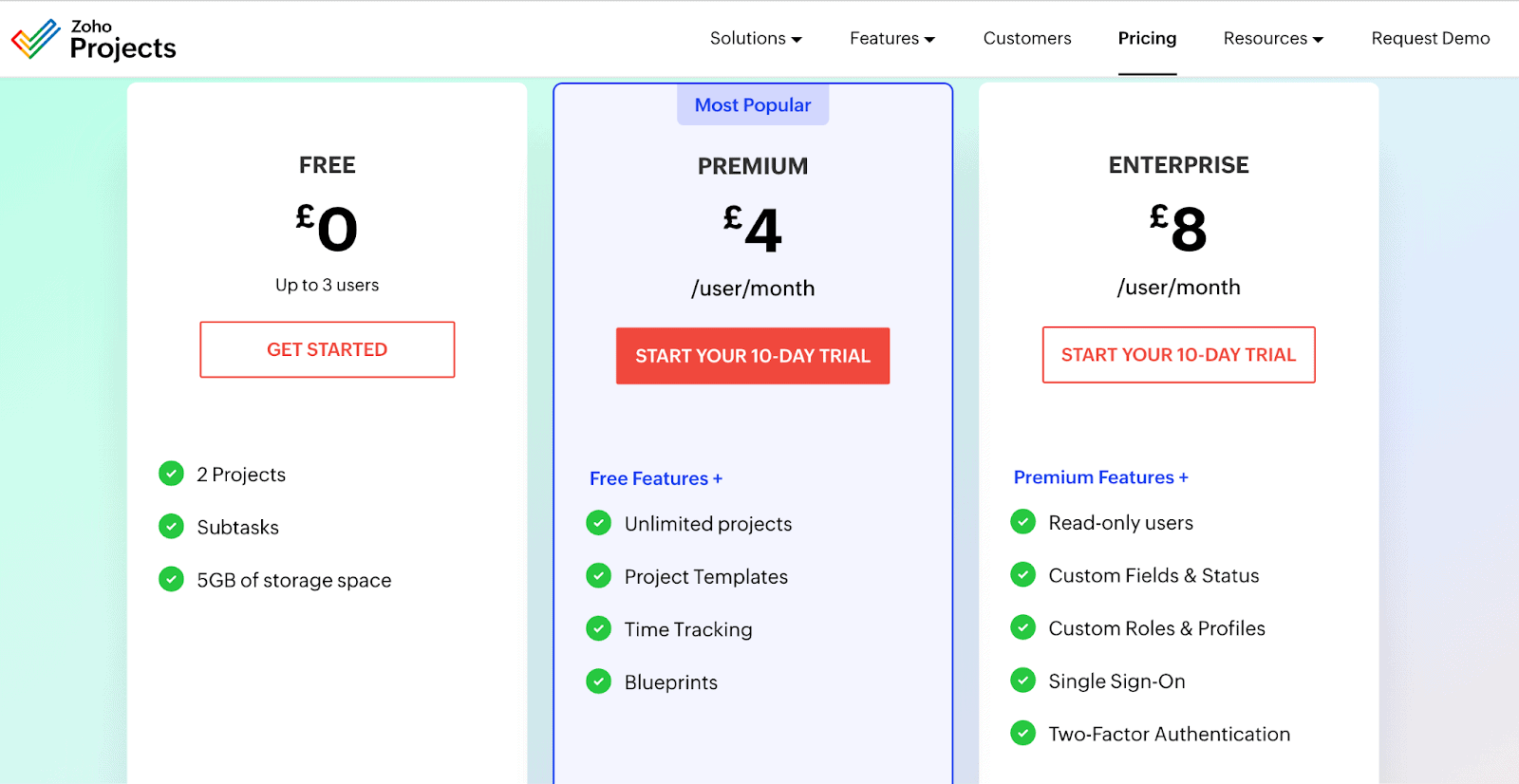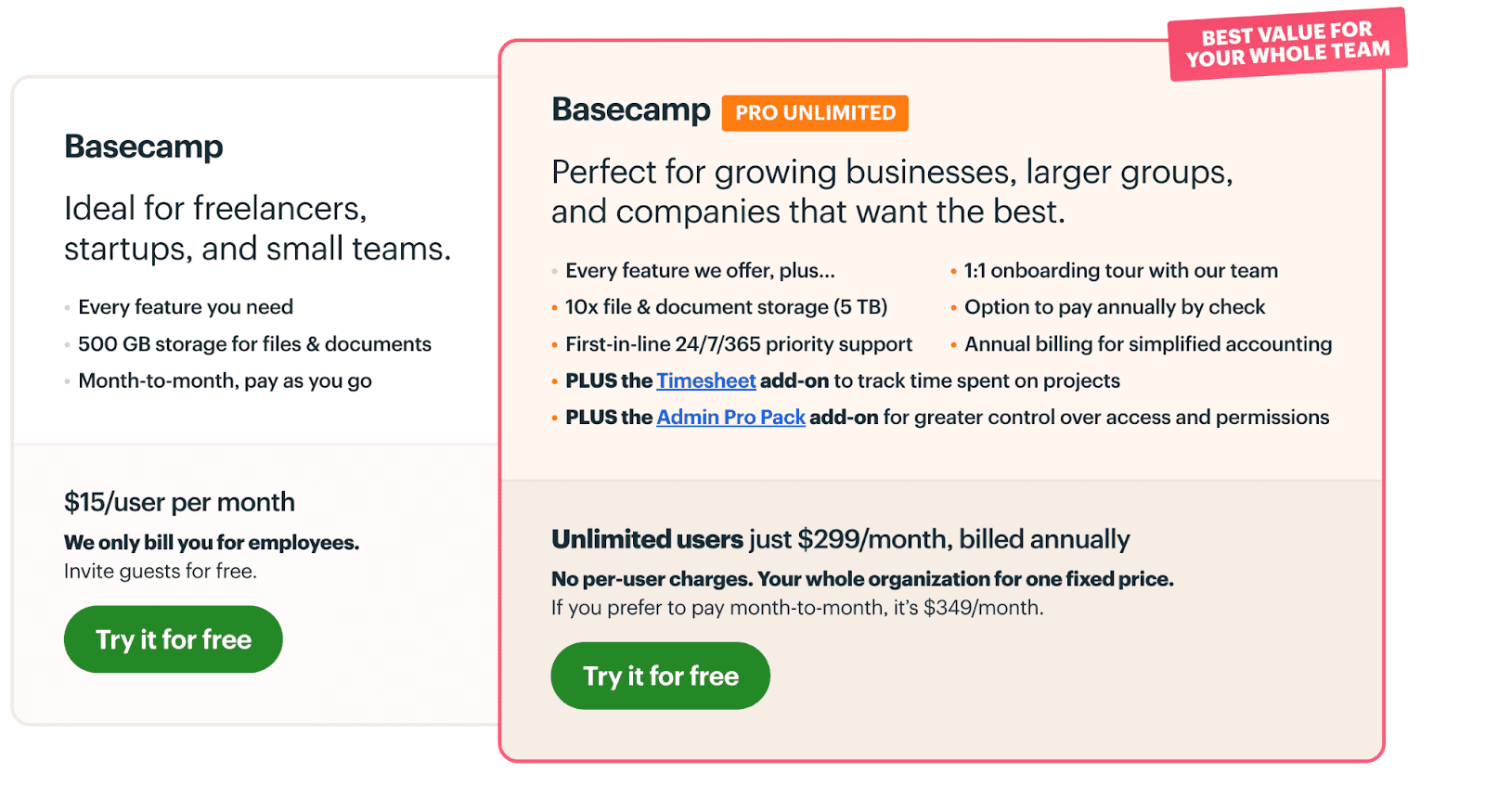In this article we’re going to take a look at the 7 best software development project management tools for 2024 and beyond.
Software development is an industry with many moving parts. Therefore, project management is crucial for ensuring things run smoothly across every single phase, from initial planning to ongoing maintenance.
As someone in software, you know better than anyone just how much tools can enhance people’s lives and make workflows easier. So, let’s take a look at 7 great examples of project management software that can help you manage your development projects.
1. Project.co
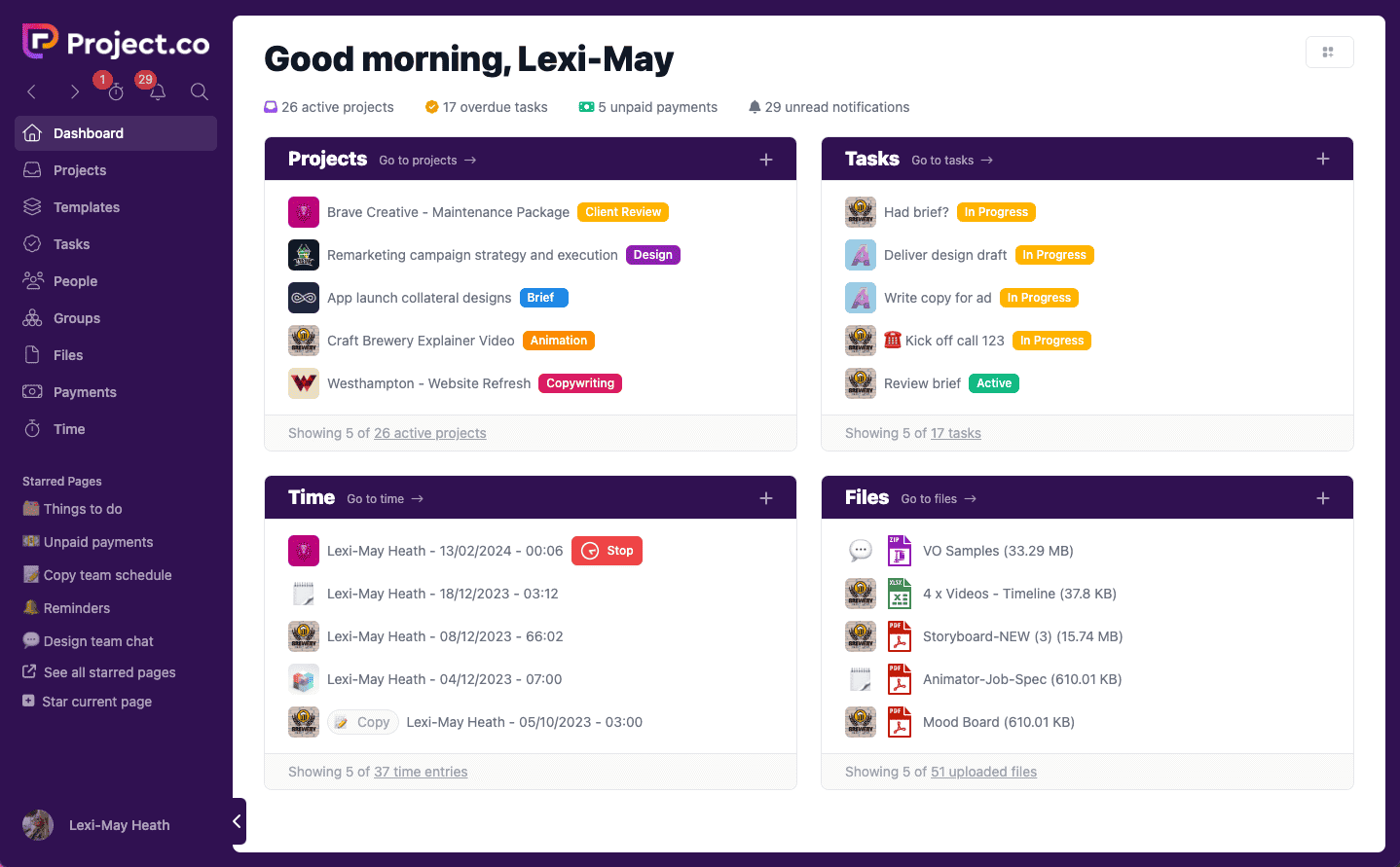
Of course, we’re starting this list off with our own tool. Wouldn’t you?
Project.co is an easy-to-use and all-encompassing project management tool that allows users to manage EVERYTHING in one centralised and secure place.
New projects can be created in just seconds, so it’s easy to create one for every part of the development projects you want to monitor. You can assign tasks to team members, track time so you know how much is being spent on various parts of development, plus keep all of your most important information together in the platform.
The embeds tool allows you to embed tons of stuff, like GitHub repositories or Figma files, so you can work on everything from code reviews to UX design directly within Project.co.

Plus, Project.co makes it even easier to get started with free templates that are specific to software development.
How much does Project.co cost?
Project.co pricing is simple. You can choose the free forever plan, for up to 3 team members and 10 active projects, or go Pro – which is $10 per user, per month.
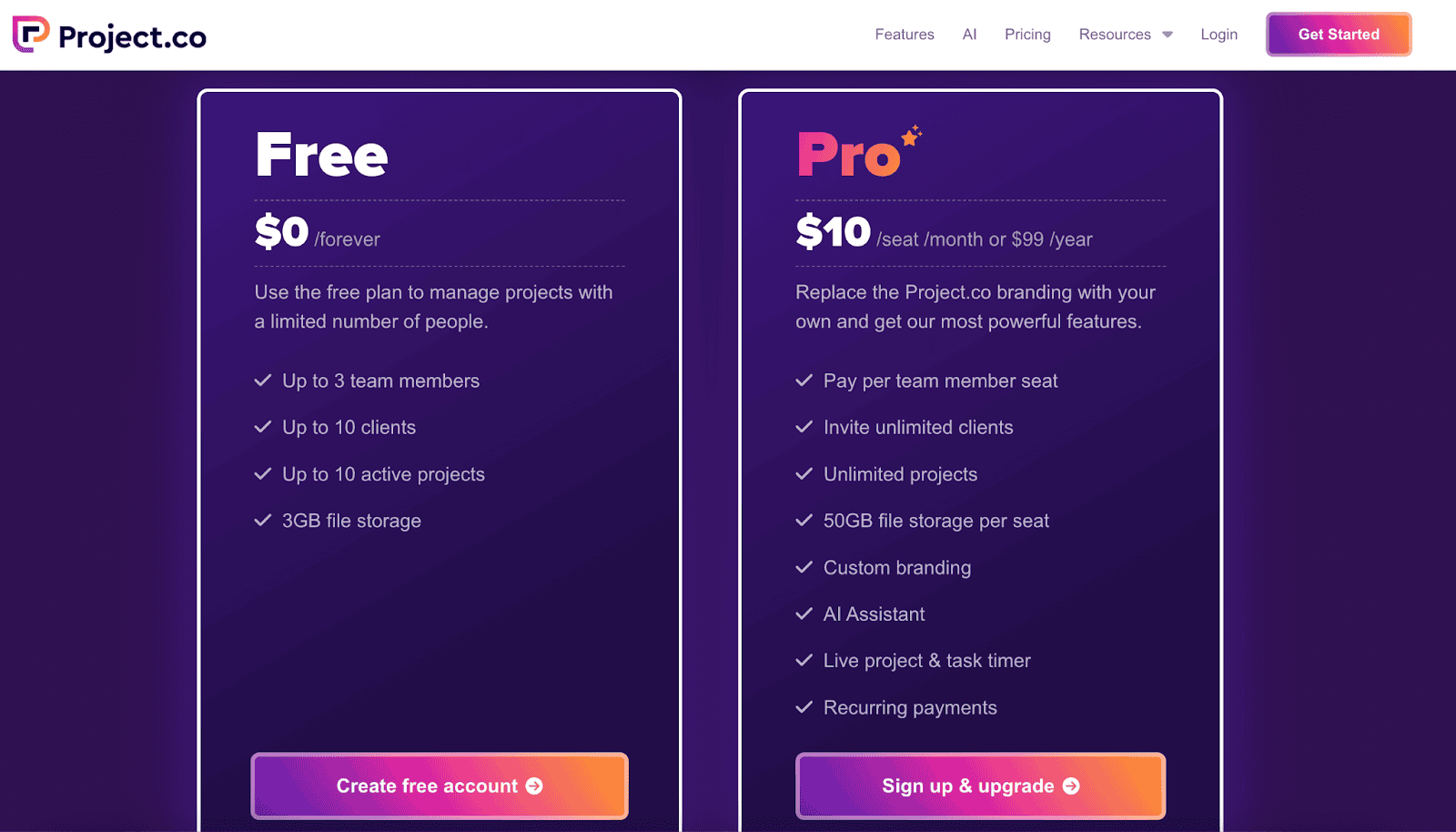
Project.co pros & cons
2. Jira
Jira is an issue & project tracking software from Atlassian designed with software development in mind. The tool is best for complex development projects that require robust bug tracking and in-depth project management features.
According to their website, Jira is ‘the single source of truth for your entire development lifecycle’. Jira supports agile methodologies – like Scrum and Waterfall – with features such as customisable workflows, sprint planning, and tools for comprehensive reporting.
This project management tool also has the power to integrate with many other tools you may already be using, which can save you tons of time.
How much does Jira cost?
Jira has 4 pricing plans: Free, Standard, Premium, and Enterprise. This incremental pricing makes it easy to scale up as and when you need to.
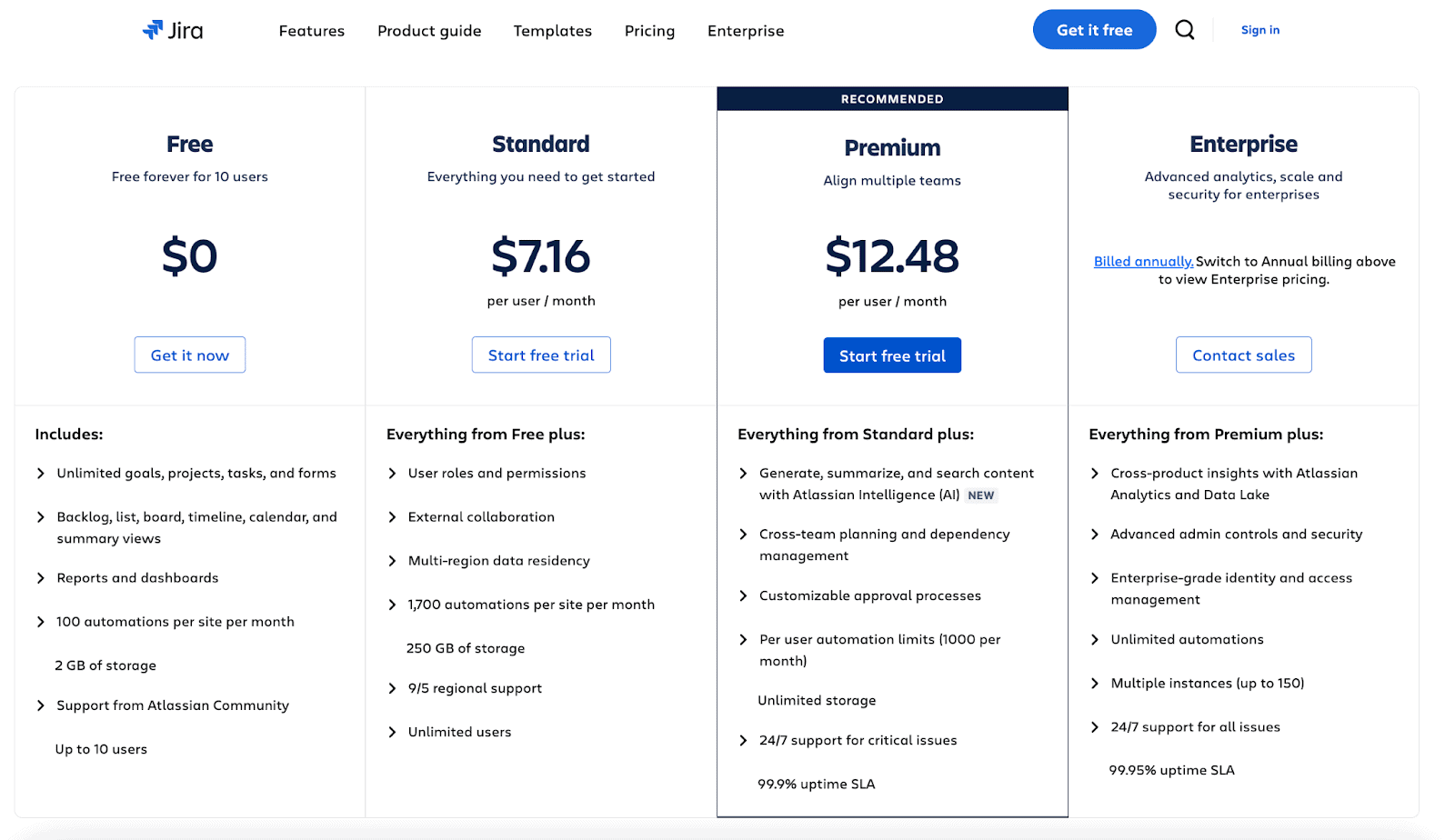
Jira pros & cons
3. Bonsai
Bonsai is a business management platform that helps users to consolidate their projects, clients, and teams together in one place. It has all of the typical features you’d expect from a project management software: time tracking, task setting, and collaboration tools.
Bonsai uses kanban boards to help teams visually manage their projects. This is particularly useful to software development teams who have adopted agile methodology, as it supports iterative progress and flexible task management.
How much does Bonsai cost?
Bonsai starts at $21 per month for their Starter plan, and increases from there. The Professional plan starts at $32 per month and the Business plan starts at $66 per month.
Bonsai pros & cons
4. Asana

Asana is a work management platform that teams can use to assign and track tasks, create project schedules, and gain insights into project performance.
Asana isn’t aimed at one particular industry, but there are some features that are attractive for software developers. The workload management aspect allows developers to keep a close eye on what their team’s working on and ensure tasks are steadily being ticked off so that projects keep progressing. Plus, Asana integrates with various development tools like GitHub and BitBucket.
How much does Asana cost?
Asana has 3 plans available for individuals and small teams. The free forever plan is pretty generous with unlimited file storage (100MB per file) and the ability to collaborate with up to 10 teammates.

Teams with more than 500 people are encouraged to get in touch with Asana directly to discuss their Enterprise plan.
Asana pros & cons
5. Zoho Projects
Zoho Projects is a cloud-based project management tool designed to help teams plan, collaborate, and track progress efficiently.
The platform offers a wide range of features that cater to businesses of all sizes, making it a flexible choice for project management across all industries, including software development.
Like other tools on this list, Zoho Projects also integrates with popular development tools, such as GitHub, and there’s also a dedicated bug tracking module that allows teams to report, manage, and resolve bugs effectively.
How much does Zoho Projects cost?
Zoho Projects offers very straight-forward pricing, with three plans to choose from: Free, Premium, and Enterprise.
The most expensive plan is only £8 per user per month, making Zoho Projects one of the most cost effective project management tools on this list.
Zoho Projects pros & cons
6. Monday

Monday is a popular work OS (operating system) designed to help teams manage their projects, tasks, and workflows with ease.
When getting started with this project management tool, you’re given the option to choose the most appropriate use case for you: CRM, Work Management, and Development.
Benefits of Monday, particularly for software development teams, include customisable workflows, various project views, and powerful automation that can reduce the amount of time you spend on menial administrative tasks.
Monday also integrates with popular development tools, including Jira, GitHub, and BitBucket.
How much does Monday cost?
Prices vary but for the Development product plans start at £31.50 per month (based on 3 seats) and increase from there based on how many users you have and the features you require. There’s also a limited free plan.

Monday pros & cons
7. Basecamp
Last but certainly not least on our list is Basecamp. Basecamp is a simple project management software built with team collaboration in mind.
Basecamp brings together task management, file sharing, and messaging in a single platform. It’s super easy to use and a great choice for smaller teams who want a straight-forward project management tool without having to deal with the complexity of more feature-heavy software.
For software developers, Basecamp offers basic features like integration with some development tools and task management that allows you to keep track of things like sprints and bug fixes.
It’s perhaps best for individual software developers or small teams that don’t have a huge project management budget.
How much does Basecamp cost?
Basecamp’s pricing couldn’t be easier. There are two plans, one for small teams and one for big companies.
Basecamp pros & cons
Final thoughts
Being a software developer comes with a lot of pressure. There’s pressure to produce something fast, cheap, and ground-breaking.
A solid project management tool can really help to alleviate some of that pressure. It allows you to keep all of your tasks, deadlines, and important files in one place, so you can stick to your schedule and focus on the software rather than the admin!
For more on this, check out this article: A Simple Guide to Project Management for Software Development.



